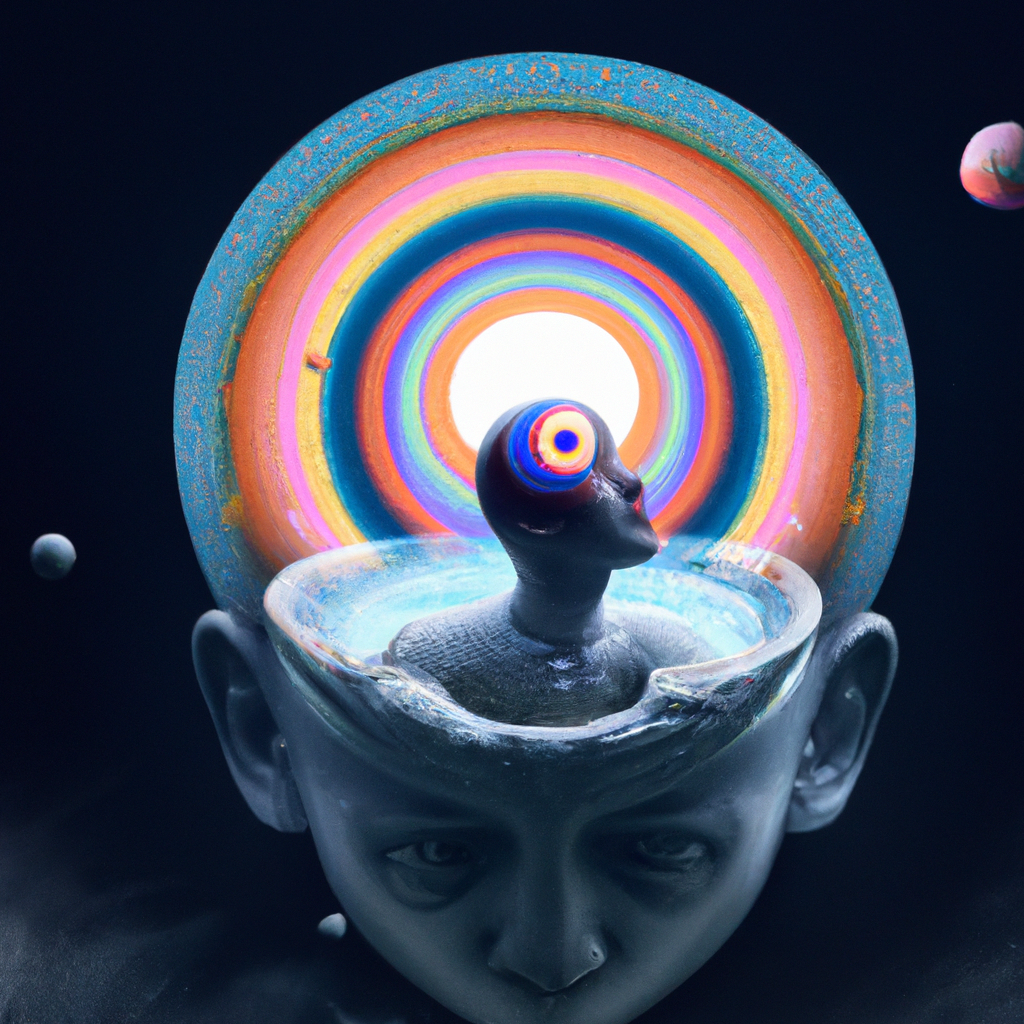
Discover Your Inner Self: A Joyful Guide to Humanistic Psychology
Do you ever feel like there’s more to life than just going through the motions? Do you crave a deeper understanding of yourself and your place in the world? Look no further than humanistic psychology and the concept of the inner self. This approach to understanding the human experience emphasizes the importance of individual growth, self-actualization, and connecting with your true inner self. It can help you unlock your full potential and find true happiness. Read on to discover how humanistic psychology and inner self psychology can guide you on a journey of self-discovery.
Unleash Your Potential: Exploring Humanistic Psychology and the Inner Self
Humanistic psychology is a field that focuses on promoting the growth and self-actualization of individuals. Developed in the 1950s and 60s, this approach emphasizes the importance of human experience, feelings, and values. A key aspect is the concept of the inner self, also known as the true self or inner being. The inner self meaning refers to the authentic, core part of who you are – your deepest feelings, values, and potential.
Humanistic and inner self psychology encourage people to explore their inner selves and embrace their unique individuality. It’s about finding your inner self spirituality and living in alignment with your inner personality. Carl Jung, a pioneer in this field, believed that the self archetype represents the unification of consciousness and unconsciousness in a person. The Jungian inner self is the central archetype of the psyche and signifies psychological wholeness.
One of the key concepts of humanistic psychology is self-actualization, which refers to the process of becoming the best version of oneself. This involves developing one’s full potential, pursuing personal goals, and finding a sense of purpose and meaning in life. Through self-reflection and exploration, individuals can identify their strengths, weaknesses, and values and work towards living as their true inner self.
Humanistic psychology also emphasizes the importance of empathy and unconditional positive regard in relationships. By treating others with respect and understanding, individuals can foster deeper and more meaningful connections with those around them. This can lead to greater happiness and fulfillment in one’s personal and professional life.
A Journey to Self-Discovery: Embrace Your Inner Self
In order to truly embrace one’s inner self, individuals must be willing to engage in self-reflection and exploration. This involves examining one’s past experiences, values, and beliefs in order to gain a better understanding of oneself. It also involves identifying one’s strengths and weaknesses and working towards personal growth and development. Finding your inner self is a journey of self-discovery.
Inner self psychology provides a framework for this process. By emphasizing the importance of personal growth and self-actualization, it encourages individuals to strive towards their full potential and live as their authentic inner being. Through introspection and self-reflection, individuals can gain a deeper understanding of themselves and the world around them.
Ultimately, embracing one’s inner self requires a willingness to be vulnerable and open to new experiences. It requires individuals to let go of preconceived notions and societal expectations and embrace their unique individuality. The inner self is what makes us who we are – it combines our conscious thoughts with our unconscious beliefs and biases. The inner self is the part of us that is hidden from the world, a state of consciousness that can be accessed through meditation and introspection.
Discovering Your Inner Self: Practical Techniques
Finding your inner self is a personal journey that requires introspection, self-reflection, and a willingness to explore your deepest thoughts and emotions. One way to start is by practicing mindfulness and meditation. These techniques help you quiet your mind and focus on the present moment, allowing you to tune into your inner voice and intuition.
Another effective method is journaling. Writing down your thoughts, feelings, and experiences can help you gain clarity and insight into your inner world. Ask yourself questions like, “What are my core values?” or “What brings me joy and fulfillment?” and reflect on your answers.
Engaging in activities that bring you joy and align with your passions can also help you connect with your inner self. Whether it’s creating art, spending time in nature, or volunteering for a cause you believe in, pursuing your interests can help you feel more authentic and in tune with your true self.
Describing Your Inner Self: Key Characteristics
Your inner self is the core of who you are – your authentic, true self that lies beneath the surface. It encompasses your values, beliefs, passions, and unique personality traits. When describing your inner self, consider the qualities that define you and make you feel most alive and fulfilled.
Are you compassionate, creative, or adventurous? Do you value honesty, kindness, or independence? Your inner self is a reflection of your deepest desires and aspirations. It’s the part of you that remains constant, even as your external circumstances change.
Describing your inner self can also involve acknowledging your strengths and weaknesses, your fears and dreams, and the experiences that have shaped you. By embracing all aspects of your inner self, you can develop a deeper sense of self-awareness and authenticity.
The Meaning of Inner: A Deeper Understanding
The term “inner” refers to the internal, personal, and often hidden aspects of oneself. It contrasts with the outer, external, or public-facing parts of our lives. When we talk about our inner selves, we’re referring to the private, intimate, and often unexplored dimensions of our psyche.
Our inner world encompasses our thoughts, emotions, memories, and dreams. It’s the realm of our imagination, creativity, and intuition. It’s where we process our experiences, form our beliefs, and develop our sense of identity.
Understanding the meaning of “inner” is crucial for personal growth and self-discovery. By acknowledging and exploring our inner selves, we can gain a deeper understanding of our own psychology and develop greater self-awareness. This, in turn, can lead to more authentic and fulfilling relationships, both with ourselves and others.
By connecting with your inner self, you can know your purpose, your values, your visions, your motivations, and your goals. You can discover who you really are on the inside. As Jung said, “the self is like all reality not knowable in its essence.” But the journey of inner self discovery is still a worthwhile and joyful one.
Discovering your inner self can be a rewarding journey. By exploring humanistic and inner self psychology and embracing the concepts of self-actualization and empathy, individuals can unlock their full potential and find greater happiness and fulfillment in life. So why wait? Start your journey of self-discovery today and unleash the inner you!
Last update: 27.03.2024

